-
 Published: May 27, 2024
Published: May 27, 2024
-
 10 min. read
10 min. read
-
 Matthew Gibbons
Matthew Gibbons Senior Data & Tech Writer
Senior Data & Tech Writer
- Matthew is a marketing expert focusing on the SEO & martech spaces. He has written over 500 marketing guides and video scripts for the WebFX YouTube channel. When he’s not striving to put out some fresh blog posts and articles, he’s usually fueling his Tolkien obsession or working on miscellaneous creative projects.
Marketing is a convoluted, ever-changing field, one that requires innovation and creativity to succeed in. If you want your marketing efforts to be the best they can be, you need resources that will help you amp them up in fresh ways — and Google searches can only get you so far.
Marketing books are some of the best resources to improve your strategy, but the question is, which ones should you read? Thankfully, we’re here to make that decision easier.
On this page, we’ll be looking at 15 of the best books on marketing strategy, including:
- This Is Marketing
- The 1-Page Marketing Plan
- Contagious: Why Things Catch On
- How Not to Suck at Marketing
- Scientific Advertising
- Making Websites Win
- Obviously Awesome
- The Hawke Method
- Renegade Marketing
- Yes!: 50 Scientifically Proven Ways to Be Persuasive
- Purple Cow
- Creating Superfans
- Duct Tape Marketing
- How to Shoot Video That Doesn’t Suck
- Positioning for Advantage
Here’s a summary of the basic info about each of those books:
| Book title | Author | Year published | Best for learning |
| This Is Marketing | Seth Godin | 2018 | The purpose of marketing |
| The 1-Page Marketing Plan | Allan Dib | 2016 | How to simplify your marketing plan |
| Contagious: Why Things Catch On | Jonah Berger | 2013 | What makes marketing campaigns go viral |
| How Not to Suck at Marketing | Jeff Perkins | 2021 | Common marketing mistakes to avoid |
| Scientific Advertising | Claude C. Hopkins | 1923 | The importance of testing and measuring marketing results |
| Making Websites Win | Ben Jesson and Karl Blanks | 2017 | How to build a website that drives traffic and sales |
| Obviously Awesome | April Dunford | 2019 | How to position your product |
| The Hawke Method | Erik Huberman | 2022 | How to improve your marketing personalization |
| Renegade Marketing | Drew Neisser | 2021 | How B2B companies can build and expand their brands |
| Yes!: 50 Scientifically Proven Ways to Be Persuasive | Noah J. Goldstein, Robert Cialdini, and Steve J. Martin | 2008 | Psychological tactics you can use to persuade prospects |
| Purple Cow | Seth Godin | 2003 | How to help your business stand out |
| Creating Superfans | Brittany Hodak | 2023 | How to increase customer loyalty |
| Duct Tape Marketing | John Jantsch | 2010 | How small businesses can optimize their marketing and sales |
| How to Shoot Video That Doesn’t Suck | Steve Stockman | 2011 | Tips for creating high-quality videos |
| Positioning for Advantage | Kimberly A. Whitler | 2021 | How to position your brand and edge out the competition |
1. This Is Marketing
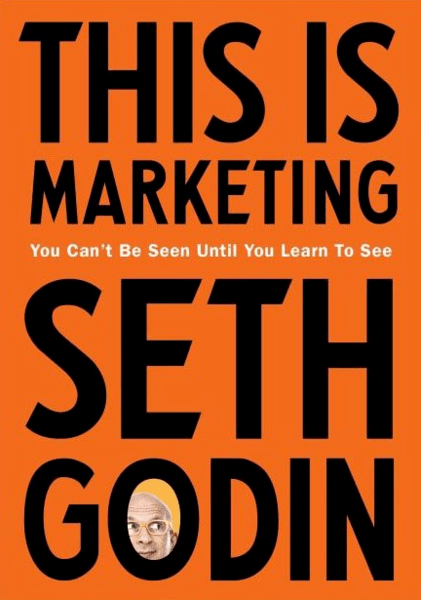
Author: Seth Godin
Year published: 2018
This Is Marketing, written by Seth Godin, is first on our list of best marketing books because it’s a great introduction for people who are new to marketing. Even if you’re not new to it, though, it’s still an excellent read. It discusses the purpose of marketing, and how it should be about providing solutions to customers.
2. The 1-Page Marketing Plan
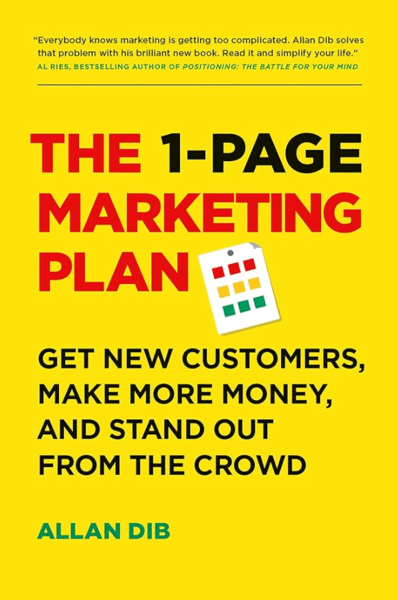
Author: Allan Dib
Year published: 2016
The 1-Page Marketing Plan by Allan Dib is the ideal book for helping you simplify your marketing strategy. It goes over a variety of marketing concepts, including things like the marketing funnel, but the book’s primary purpose is to help you keep your marketing plan as simple as possible.
3. Contagious: Why Things Catch On

![]()
Author: Jonah Berger
Year published: 2013
Contagious: Why Things Catch On, written by Jonah Berger, is a self-explanatory book about marketing strategy — it’s all right there in the name. This book explains why certain tactics spread like wildfire while others fall flat. It also provides six steps you can follow to help your own products and marketing efforts take off.
4. How Not to Suck at Marketing
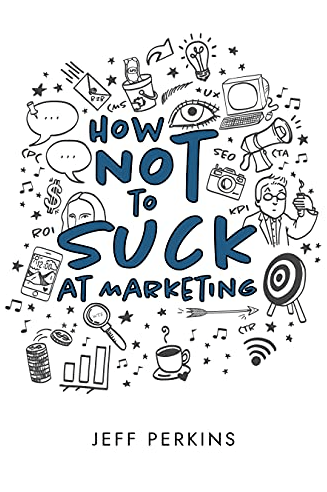
Author: Jeff Perkins
Year published: 2021
In How Not to Suck at Marketing, Jeff Perkins covers a wide array of common marketing mistakes. These mistakes aren’t just ones that beginners might not know — a lot of them are things that even experienced marketers still do. It’s great for eliminating poor practices from your strategy.
5. Scientific Advertising

Author: Claude C. Hopkins
Year published: 1923
If you noticed the publication date listed above, you’re probably surprised to see Scientific Advertising listed here. However, despite being over a century old, the advice found in this book is still pivotal to understanding why measuring results is crucial to the success of marketing and advertising.
6. Making Websites Win
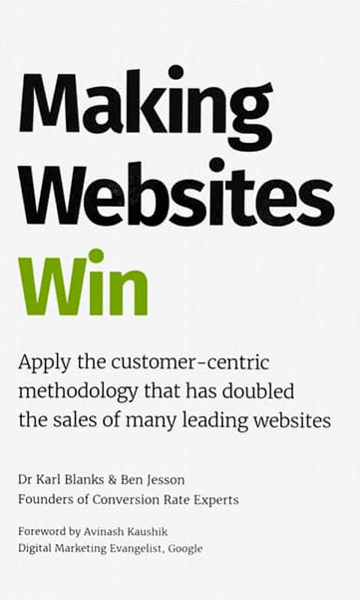
![]()
Author: Ben Jesson and Karl Blanks
Year published: 2017
In today’s world, your website is arguably the most important facet of your marketing, since so much of it happens online. Making Websites Win explores how to build a website that your audience will love and that will drive sales for your business. It’s one of the best marketing books out there.
7. Obviously Awesome
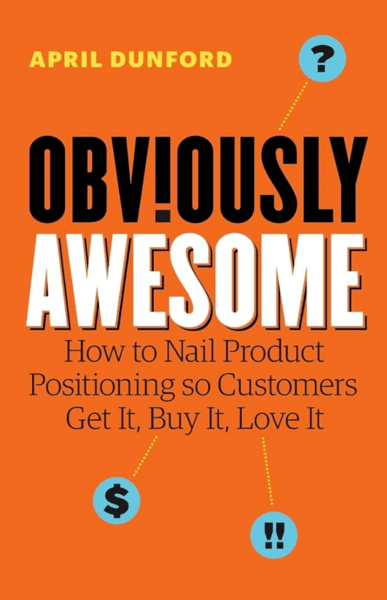
Author: April Dunford
Year published: 2019
Another essential book about marketing strategy is Obviously Awesome by April Dunford. This book illustrates how to position your product in the market so that your audience will quickly understand what it is and why they need it. It looks at a variety of market factors you should consider when doing this.
8. The Hawke Method
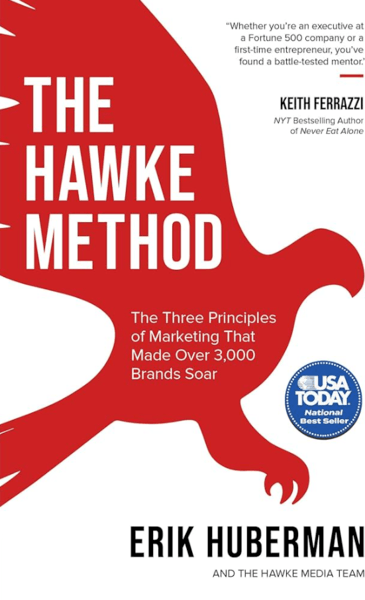
Author: Erik Huberman
Year published: 2022
The Hawke Method was written in recognition of the fact that prospects today want their marketing experiences to be as personalized as possible. To help you improve your personalization, it explains how to optimize three key elements of your campaigns: Nurturing, awareness, and trust.
9. Renegade Marketing
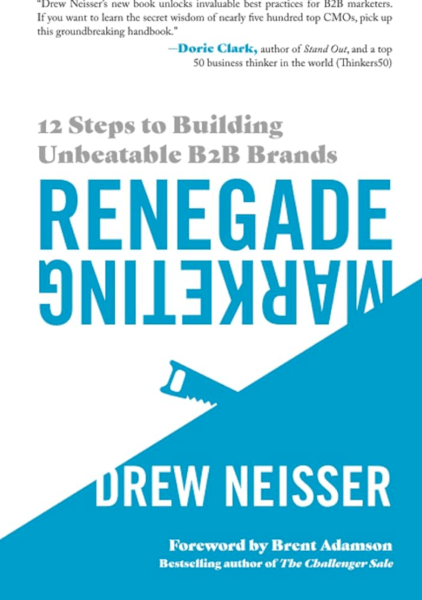
Author: Drew Neisser
Year published: 2021
Renegade Marketing, by Drew Neisser, focuses specifically on business-to-business (B2B) companies. It talks about fairly basic marketing concepts, explaining how these companies can build the most compelling brands, reach the best audiences, and drive the most leads and sales over time.
10. Yes!: 50 Scientifically Proven Ways to Be Persuasive
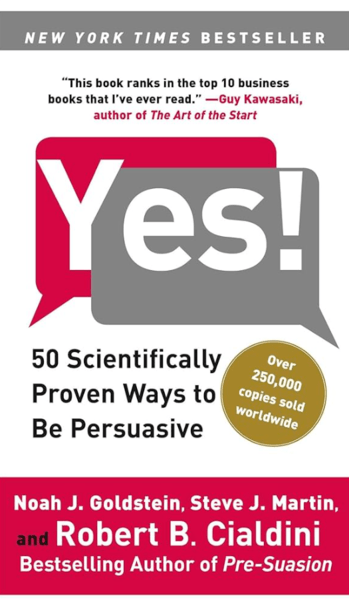
![]()
Author: Noah J. Goldstein, Robert Cialdini, and Steve J. Martin
Year published: 2008
Yes!: 50 Scientifically Proven Ways to Be Persuasive isn’t strictly a book about marketing strategy. It’s actually a psychology book, compiling years of research into a book that explores a multitude of methods for being persuasive. Even though it’s not marketing-specific, this book can change the way you approach your campaigns. Knowing how to be persuasive is great for convincing your audience to buy.
11. Purple Cow
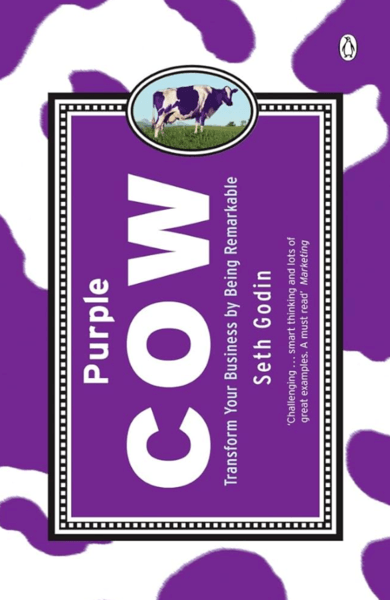
Author: Seth Godin
Year published: 2003
The premise of Purple Cow is that in order to succeed in your market, you have to find a way to stand out from the crowd. Seth Godin (the same author who wrote This Is Marketing) uses examples of real-life companies to demonstrate some of the best ways to do that.
12. Creating Superfans
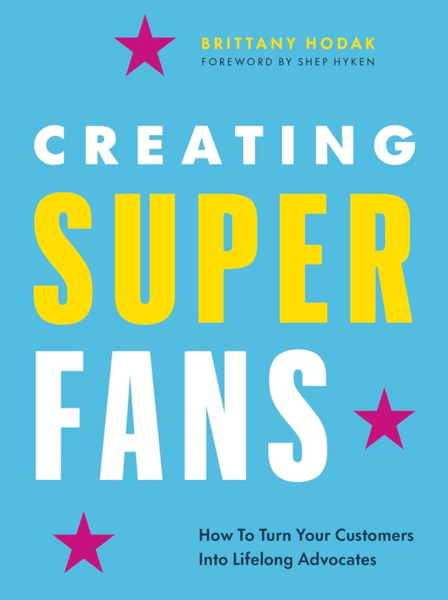
Author: Brittany Hodak
Year published: 2023
Creating Superfans is one of the best marketing books out there, because it shows you how to go beyond attracting casual customers. Brittany Hodak wrote this book to teach readers what they can do to encourage deep loyalty amongst customers and employees alike.
13. Duct Tape Marketing

Author: John Jantsch
Year published: 2010
Duct Tape Marketing is another of those marketing strategy books that approach marketing very broadly. John Jantsch, the author, focuses on very basic elements of building out your business and driving sales. However, what makes this book stand out is that it’s written specifically for small businesses.
14. How to Shoot Video That Doesn’t Suck
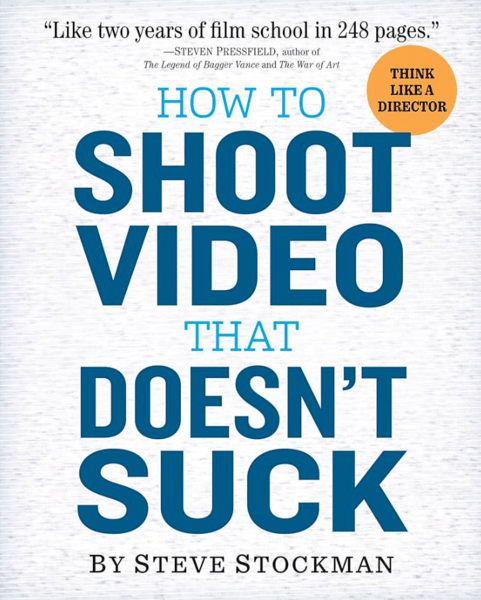
![]()
Author: Steve Stockman
Year published: 2011
Yet another of the best books on marketing strategy is How to Shoot Video That Doesn’t Suck, written by Steve Stockman. The name pretty much says it all — this book is about creating high-quality videos. It’s perfect for helping you optimize your video marketing strategy, if you have one (and if you don’t, you should!).
15. Positioning for Advantage
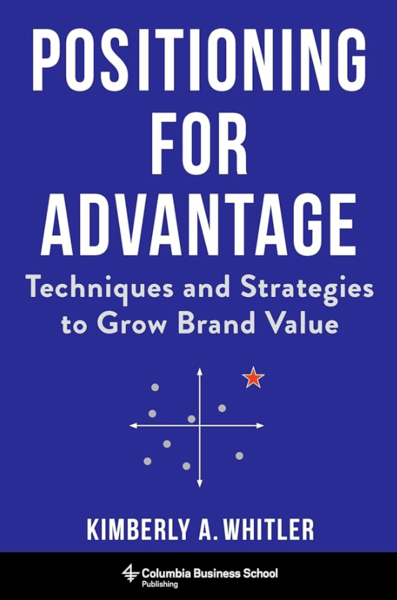
Author: Kimberly A. Whitler
Year published: 2021
While Obviously Awesome focused on product positioning, Positioning for Advantage is more about how to position your brand as a whole. It invites you to take a closer look at how you’re presenting your brand, including how it compares to your competitors’. It’s great for figuring out how to beat out the competition in the branding department.
Good agencies have more than 50 testimonials. Great agencies have more than 100 testimonials.WebFX has over 1,100+ glowing client testimonials.
See What Makes Us Stand out 

Learn even more about digital marketing with WebFX
Reading any of these marketing strategy books is a great way to learn how you can improve your campaigns and drive better results. But you may feel like you don’t have time to sit down and read an entire book on marketing. Does that mean you don’t have a way to learn helpful marketing tips?
Nope! If you’d rather learn through short-form content like blog posts and videos, WebFX has you covered. You can subscribe to our email newsletter, Revenue Weekly, to get fresh marketing tips sent to your inbox regularly.
And if you’re looking for help managing your marketing campaigns directly, we can help out there, too. We’ve been offering digital marketing services for over 29 years, so we know what we’re doing. Call us at 888-601-5359 or contact us online today to partner with us!
-
 Matthew is a marketing expert focusing on the SEO & martech spaces. He has written over 500 marketing guides and video scripts for the WebFX YouTube channel. When he’s not striving to put out some fresh blog posts and articles, he’s usually fueling his Tolkien obsession or working on miscellaneous creative projects.
Matthew is a marketing expert focusing on the SEO & martech spaces. He has written over 500 marketing guides and video scripts for the WebFX YouTube channel. When he’s not striving to put out some fresh blog posts and articles, he’s usually fueling his Tolkien obsession or working on miscellaneous creative projects. -

WebFX is a full-service marketing agency with 1,100+ client reviews and a 4.9-star rating on Clutch! Find out how our expert team and revenue-accelerating tech can drive results for you! Learn more
Try our free Marketing Calculator
Craft a tailored online marketing strategy! Utilize our free Internet marketing calculator for a custom plan based on your location, reach, timeframe, and budget.
Plan Your Marketing Budget
Table of Contents
- 1. This Is Marketing
- 2. The 1-Page Marketing Plan
- 3. Contagious: Why Things Catch On
- 4. How Not to Suck at Marketing
- 5. Scientific Advertising
- 6. Making Websites Win
- 7. Obviously Awesome
- 8. The Hawke Method
- 9. Renegade Marketing
- 10. Yes!: 50 Scientifically Proven Ways to Be Persuasive
- 11. Purple Cow
- 12. Creating Superfans
- 13. Duct Tape Marketing
- 14. How to Shoot Video That Doesn’t Suck
- 15. Positioning for Advantage
- Learn even more about digital marketing with WebFX

Proven Marketing Strategies

Proven Marketing Strategies
Try our free Marketing Calculator
Craft a tailored online marketing strategy! Utilize our free Internet marketing calculator for a custom plan based on your location, reach, timeframe, and budget.
Plan Your Marketing Budget
What to read next





